Consider this a warning. Your SEO firm could be hurting you.
I know a lot of small businesses who have placed their trust in an SEO agency, only to have their sites all but destroyed through black hat techniques. I’ve seen struggling online startups spend thousands of dollars trying to “skyrocket in the rankings,” and then realize they’ve been scammed.
I don’t want that to happen to you. I don’t want you to waste your money or ruin your site. I wrote this article so you can figure out if your SEO agency is doing good or doing harm.
I’ve organized the article into three parts. First, I’ll explain how to know if they’re hurting you. Second, I’ll explain how to know if they’re truly helping you. Finally, I’ll explain a few things that will help you work with an SEO agency in a profitable way.
Your SEO Agency Is Hurting You: Signs They’re Doing It Wrong
So you hire an SEO agency. Now what? Should you trust them with all things SEO, expecting your rankings to rise as they work their SEO magic?
No.
Instead, you should find out exactly what they’re doing, especially during the first few months of the contract. The earlier you can find out what they’re doing, the better chance you have of determining whether they are helping or harming your site.
Here are the warning signs that your SEO agency could be a problem.
1. They have nothing to show.
Your SEO agency should have something to show you. I’m not talking about results or a rise in rankings. Instead, the agency should be able to show you the actual SEO practices they are doing.
Two, three, or even four months into a contract might be too early for significant SEO results, so don’t sweat it if you’re not seeing the top results you were hoping for.
However, your SEO agency should be doing something with the money that you give them. You have a right to ask for deliverables.
Here are some of the things that an SEO agency might be able to provide in the first few weeks or months of a contract:
- An SEO audit of your site
- An analysis of your site’s link profile
- Optimized content on your site
- Articles with links to your site that are being or have been published on other sites
This is just a sampling. Whatever the case, you should make sure that they are actually doing something, and have proof of it.
2. They don’t ask you for anything.
An SEO agency that’s doing good stuff is going to need your help. You’re the site owner, so they might ask you for the following:
- Editor or admin access to your CMS
- View or admin access to Google Analytics
- Access to Google Webmaster Tools
- Access to social accounts
- A list of target keywords
- Past audits/penalties/work
If they don’t ask for anything, it could be that they’re merely adding linkbacks from their vast network of spammy sites. They don’t need access, and there’s a chance they are performing potentially harmful actions.
3. They have no suggestions for improvements
If an SEO agency is not asking you or telling you to do certain things, it’s a sign that they are up to something suspicious — either that, or doing nothing at all.
Disreputable SEOs often just point a bunch of linkbacks to your site. They are hoping that their low efforts will yield high results. They’re not interested in interfacing with you, their client. Instead, they just want to give you something that will make you think that you’re getting a benefit.
The best SEO agencies view their relationship with you as a partnership. In order for you to be successful, you’ll have to work with them. That means they will make recommendations. I’ll tell you what kind of recommendations later on in this article.
4. They can’t share their techniques.
If you’re curious as to what your SEO is doing — and you should be — ask them.
“So, what it is exactly that you guys are doing?”
Any of these responses are glaring scam signals:
- “As an SEO firm, our efforts on your behalf must remain confidential.”
- “Due to the nature of the industry, we’re not permitted to disclose our practices.”
- “Well, we do a variety of things, but it involves basically optimizing your site for search engines.”
- “Oh, tons of things. It would take me too long to explain.”
- “I’m not sure exactly, but I’ll get back with you.”
If you get an answer like that, I recommend firing the agency as fast as you can. True SEO involves white hat practices that are accepted as legitimate and are proven to get results. If your agency is doing those things, they should be able to explain them.
If they can’t, you’ve invested in a scam. Tell them to go away.
5. You get a manual penalty.
A manual penalty is one of the worst things that can happen to your site.
You’ll know if you receive a manual penalty if you get a GWT notification or an email message.
If you receive a manual penalty one or two months after commencing work with an SEO agency, you have a right to be suspicious.
Obviously, you don’t want to fire them right away. Just because you got a manual penalty doesn’t mean it’s their fault. But it might be.
You need to do some careful thinking and close questioning to find out exactly why your site was penalized and what to do about it.
6. Your rankings drop.
Rankings drop for a variety for a variety of reasons. In another article, I’ve explained several of the common reasons.
I recommend that you keep an eye on your rankings (but not obsess over it). If you notice that your rankings are steadily declining, then your SEO might be performing actions that are getting your site algorithmically penalized.
You need to find out what the agency is doing. If it sounds, looks, feels, or smells suspicious, get them get them to stop.
7. Your traffic drops.
A sudden traffic drop, like a rank loss, could be the sign of an algorithmic penalty.
This is a bad thing.
It may or may not be your SEO’s fault. The cautious response is to be suspicious, and start asking questions.
First, find out if there have been any algorithm changes which could have coincided with the traffic decline. Second, determine exactly what changes were made to your site in the days and weeks leading up to the decline. Finally, get an accurate picture of what offsite actions were taken by your SEO agency.
8. You start ranking for the wrong keywords.
You should already know what your target keywords are. In addition, you should have an idea based on Google Analytics, how your longtail keywords are driving traffic and/or ranking in the SERPs. To determine analytics on this, navigate to Acquisition → Keywords → Organic.
If your organic keywords change significantly, beware. If you begin gaining traffic from the wrong keywords, it’s happening for a reason. Or, if you stop ranking for previously high ranking keywords, this is also problematic.
Your goal in growing your traffic is to earn targeted traffic. If, for some reason, the traffic comes from arbitrary or suspicious queries, then it could a sign of indiscriminate and careless work by an SEO.
9. You see an uptick in suspicious linkbacks on your link profile.
One of the metrics that you need to watch is your link profile. Your link profile is like a sign that you wave to Google telling them, “Here’s how to rank me!”
If your link profile gets messed up, your site is in trouble.
How does a link profile get messed up? It gets messed up when your site receives too many questionable linkbacks from spammy or suspicious sites.
Here’s a random example:
The backlink comes from a site that is entirely outside of the niche and language of the recipient site.
If you begin to see a proliferation of backlinks like this, it could be a sign that your SEO is targeting your site with a lot of random backlinks. Instead of adding link juice and site authority, these linkbacks are devaluing your site.
This technique — spraying a site with as much junk and random linkbacks as possible — used to work. In some rare cases, it may still cause a temporary spike in traffic and/or rank. In time, however, the traffic and rank start to drop, and an algorithmic or manual penalty could result.
Show your SEO agency the list of suspicious sites, and ask them if they know where they came from. (You may or may not receive an honest answer.) Whatever the case, you now have some cleanup to do, and your agency might have caused the problem.
10. You see optimized anchor text from linkbacks.
“Optimized anchors” are a major no-no in SEO today. Google’s Penguin update way back in 2012 penalized 3.1% of all sites that showed signs of anchor optimization, and more recent updates have kept with the trend.
Optimized anchors consists of an anchor text made up of your keywords.
For example, let’s say your site is “www.cheapelectricguitarsonline.com.” You are trying to rank for “cheap electric guitars online.” You gain a backlink, and the keyword is “cheap electric guitars online.”
That’s a textbook example of anchor optimization.
If you find, based on research into your link profile, that you’re gaining a substantial amount of such optimized links, then it could be the devious work of your duplicitous SEO.
Here’s a telltale sign:
- Scenario: Your link profile has few or no optimized anchors.
- You contract with an SEO agency, and give your SEO a list of target keywords.
- A few weeks later, your link profile has a lot of optimized anchors, and these anchors match the keyword list that you gave your SEO agency.
You’re on the runway, taxiing for a penalty, and it’s your SEO agency’s fault.
Your SEO Agency Is Helping You: Signs They’re Doing It Right
There are some good SEOs out there. I hope that you’re working with one of them. Here are a few of the reassuring signs that you’ve got a good SEO partner.
1. They have deliverables.
A quality SEO firm is going to show you what they’re doing. They may not be able to show you first-page results, but they do give you evidence of things that they’ve done.
For example, they may show you the following:
- Actual sites that have real dofollow backlinks to your site
- An audit of your site, homepage, content, or link profile, that includes action points
- New content for your pages, or changes to your existing content
- A weekly or monthly report, displaying work they’ve done and how your site ranks
SEO agencies can’t wave the magic wand to improve rankings, but they can do things. If they show you exactly what they’re doing, that’s a good sign.
2. They have recommendations for improvement.
No SEO can help you unless you’re helping them help you. (Did you catch that?)
If they recommend that you do certain things, this tells you that the agency wants to work with you in a partner relationship. If you comply with their requests, you will most likely see the kind of results that you’re hoping for.
Here are a few of the things that quality SEO agencies may recommend:
- Start social channels — Facebook, Twitter, YouTube, Google+, LinkedIn, etc.
- Integrate social channels with home page
- Launch a content marketing plan
- Start a blog
- Add content to your homepage
- Integrate internal linking into your existing content
- Optimize all site content
- Add alt tags to images
- Change your robots.txt to allow crawling on other portions of the site
- Create a sitemap.xml
- Improve site speed
- Add WP plugins like Super Cache or Yoast to enhance SEO
- Perform a link profile audit
- Disavow spammy links
When the agency makes such recommendations, they’re not necessarily trying to upsell you or scam you. Sure, the “extra services” — audits, content, etc. — might cost. But this isn’t throwaway money on your part. These SEO services are intended to help you.
I know of SEO agencies who might actually fire you, the client, if you don’t comply. That sounds harsh, but it’s a sure sign that the agency is wearing a white hat and doing the right thing.
3. Your ranking improves.
Ah, rank! Everyone loves to talk about rank, and everyone loves to see rank improvements. If your SEO agency is giving you better rank, then you’re probably in good hands.
Here are signs of legitimate and trustworthy rank improvement:
- Your site is ranking for your target keywords
- Your site is ranking on the first page of Google
- Your site is ranking for a variety of longtail keywords
- Your ranking stays consistent. Shifting a few positions up and down on a weekly basis is normal. Dropping several positions day after day for several days at a time is not good.
4. Your traffic goes down, but your revenue goes up.
In some cases, you may work with an SEO agency, and subsequently see your traffic drop.
Is this cause for concern? Yes, but only if your revenue goes down. It’s possible that your traffic drops, but your revenue increases.
Understand this: Your goal is targeted traffic, not just lots of traffic. If you receive less traffic, but it’s good traffic, then you’ll improve your revenue.
How so? “Good traffic” consists of traffic that comes from 1) the right longtail keywords, and 2) the right audience. This kind of traffic is more likely to convert on your site. The result? You get more conversions and revenue from fewer visitors.
(Thank you, awesome SEO agency.)
Things You Need to Do
As you try to figure out whether you’re working with a scam agency or a legit agency, there are a few things you should do. Here is my list of six rules for working with an SEO agency.
1. Be patient.
Have you been working with an agency for three months, but haven’t seen any “results?” Relax. SEO takes time.
2. Do your own research.
I recommend that you learn all you can about SEO, and stay on top of any industry changes.
Do not assume that your SEO agency possesses all the best knowledge. Sometimes, they’re just running on the wheel of outdated techniques, thinking it will get them somewhere. It won’t.
3. Work with them.
SEO is a team effort, and you’ll need to view your agency as a partner in the process. If they’re a good agency, and they ask you to do something, please comply.
If you’ve asked them to do SEO work, you’re going to have to share the burden, too. SEO is a multifaceted field. They’re going to do some of it. You need to do stuff, too.
4. Don’t expect a guarantee (or a refund).
SEOs can’t guarantee their work. Sorry. They can’t do “100% satisfaction” or “full money back guarantees” that some companies are able to do.
Why not? Because SEO is always in flux. SEOs are working with powers — specifically the Power of Google — that are outside of their control. It would be like Apple saying, “Yeah, we can guarantee Microsoft’s work.”
Things change. The tried-and-true practice that worked great on Tuesday might not work well on Thursday.
5. Know what to expect.
Have a clear understanding of what you expect your SEO to do. Don’t fire them because they’re not doing something that they weren’t supposed to do.
Are they….
- Creating content?
- Creating linkbacks?
- Auditing content?
- Optimizing for local SEO?
- Monitor your link profile?
- Creating new social channels?
- Optimizing conversion elements?
They may do only one thing. They may do nothing in the list above.
Have a clear knowledge from the get-go of what the agency is doing for you.
6. Monitor them.
You have to do this with any outsourced process: Keep tabs.
Find out how they’re doing. Find out what they’re doing. Ask for reports. Check in with your account manager. Look at the reports they send.
Ask questions.
Don’t Underestimate the Importance of SEO.
Your online business will succeed or fail based on SEO. It’s too important to hand over to just anyone.
If you’re truly concerned about your business’s success, you’ll give SEO the attention and investment it deserves.
How have you been helped or hurt by an SEO agency?
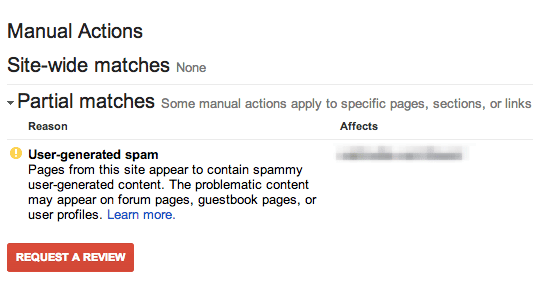
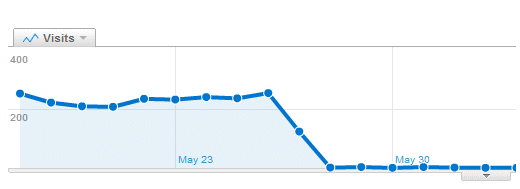
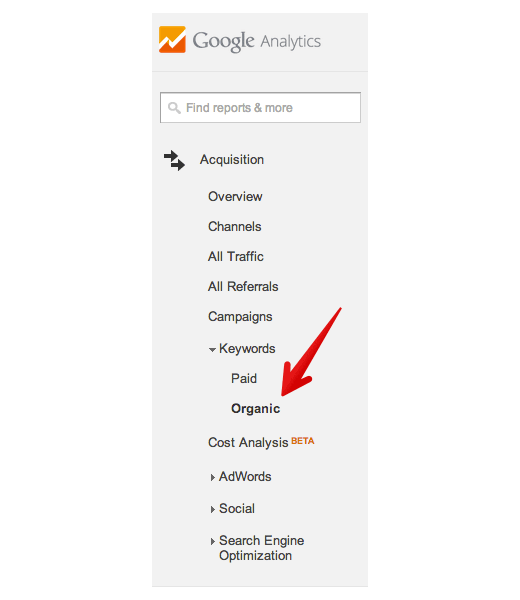
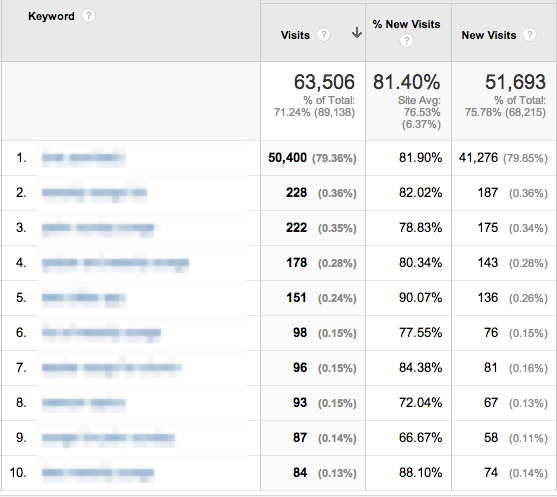
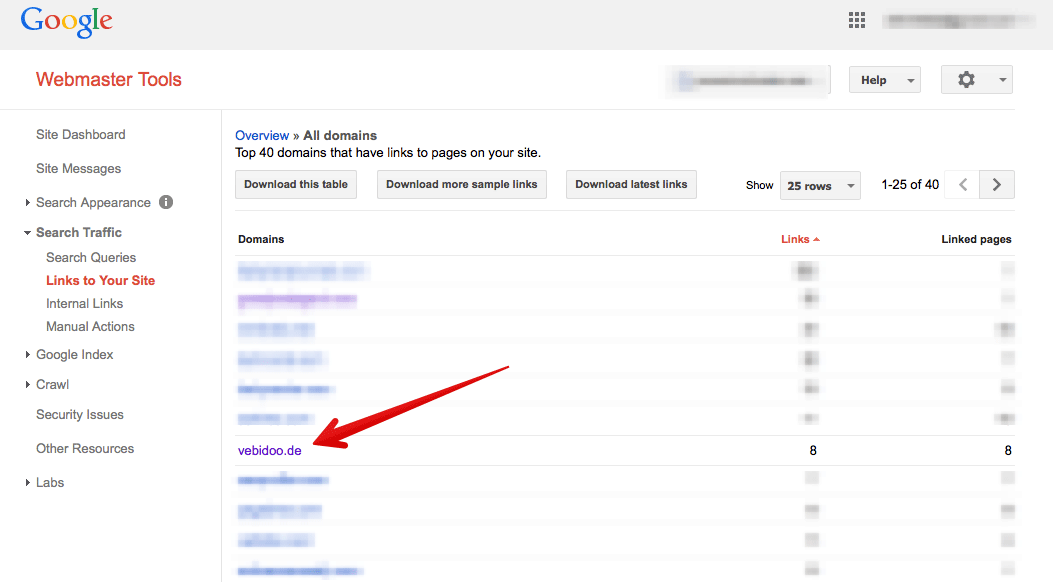
Comments (75)